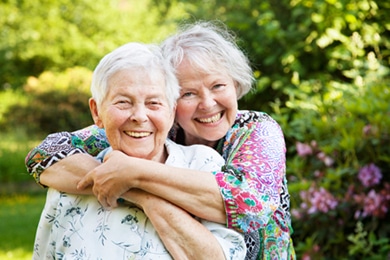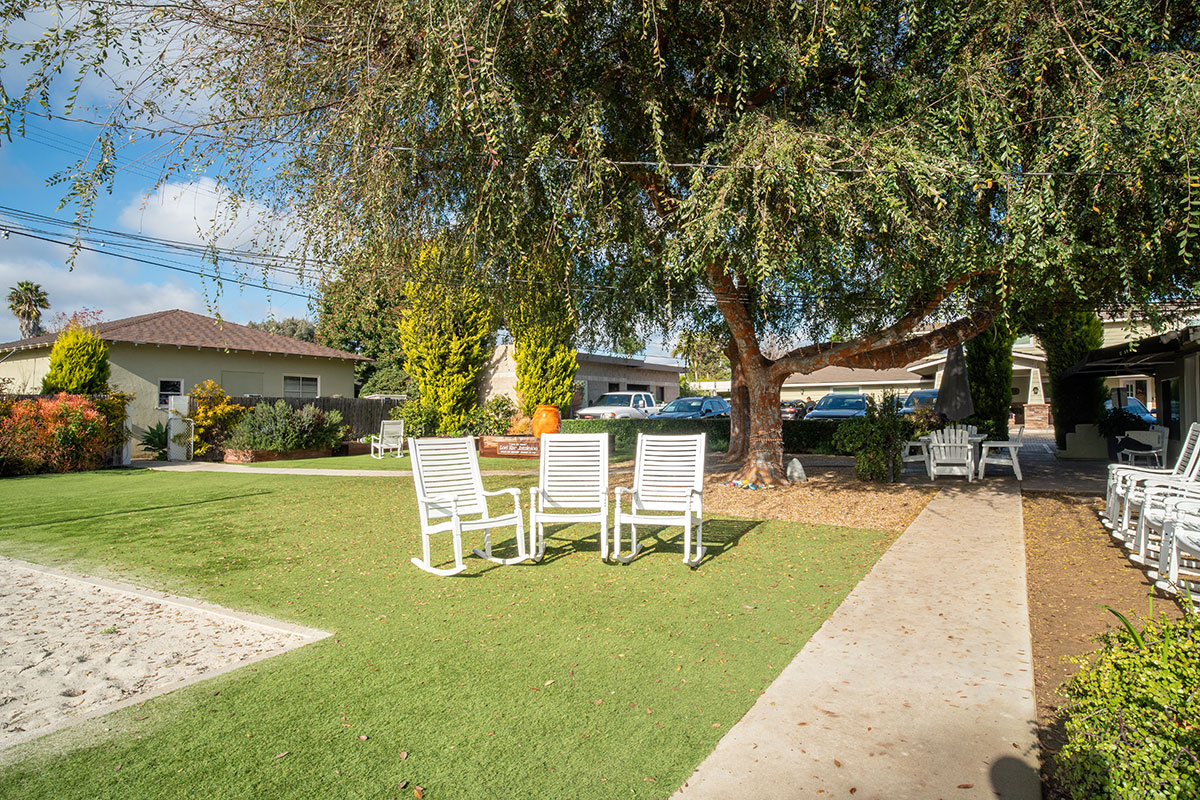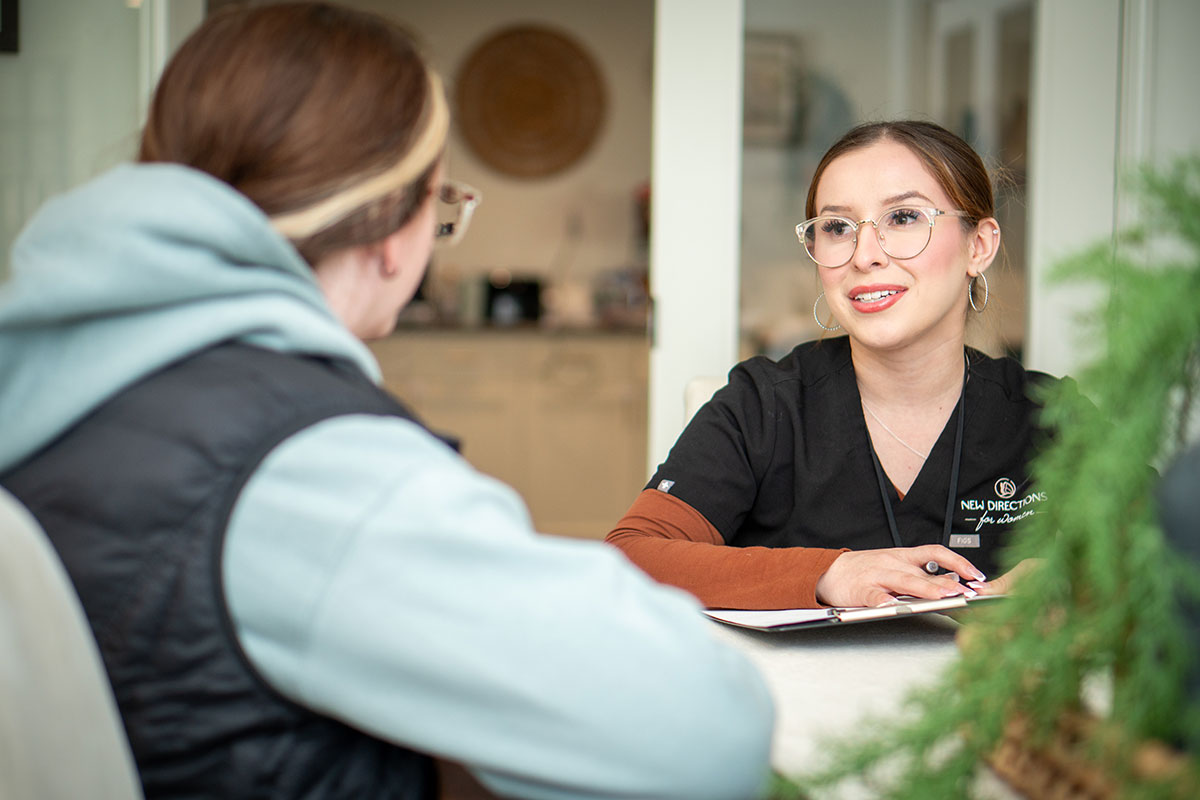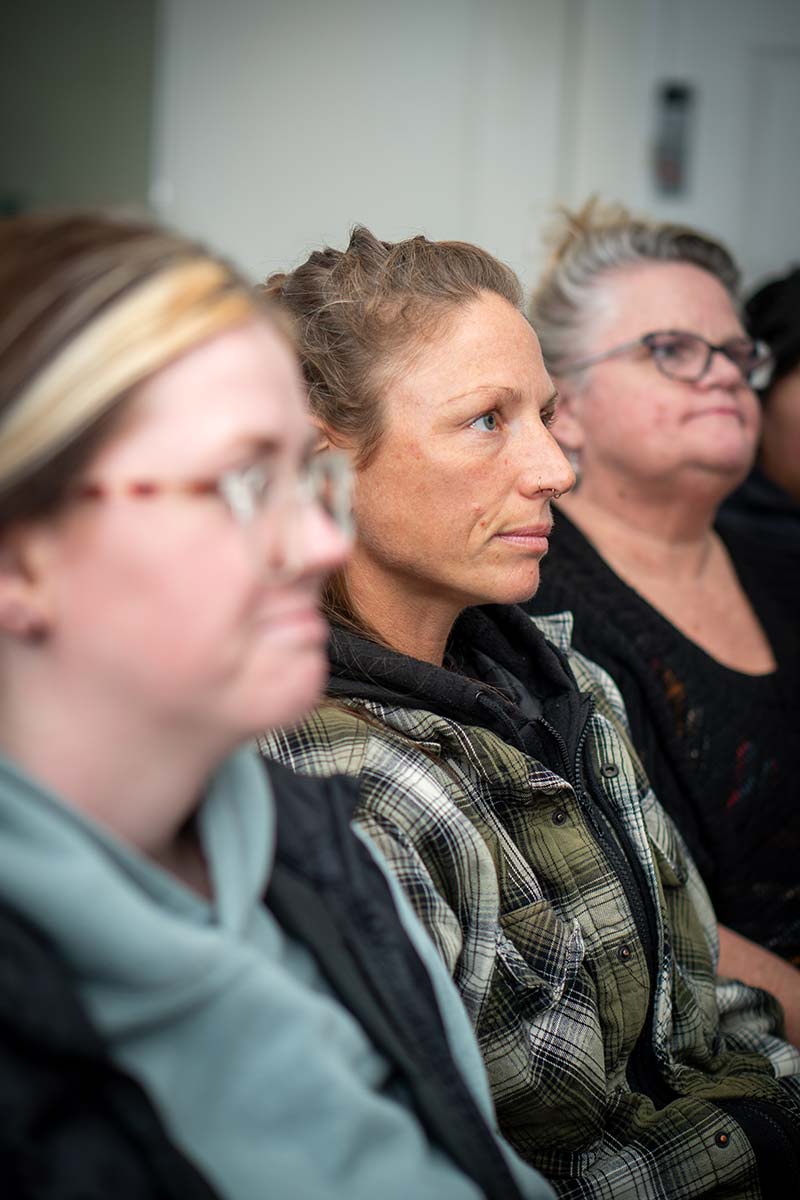 Research shows that as a result of telescoping, two years of a woman’s alcohol or drug use equals 10 years to that of a man. Women suffer from cirrhosis of the liver at 2 times greater a rate than men do.
Research shows that as a result of telescoping, two years of a woman’s alcohol or drug use equals 10 years to that of a man. Women suffer from cirrhosis of the liver at 2 times greater a rate than men do.
In addition, women have the earlier onset of Korsakoff syndrome, a chronic memory disorder. This syndrome can occur at a much younger age for women than for men. As a result, women are entering treatment younger and more physically ill. This is where mature women’s rehab can be beneficial.
When a mature woman enters treatment, whether they’re in their 40s, 50s, or 60s, it’s quite often that the assessment process requires evaluation of the physical, emotional, and spiritual well-being of the client. This process in and of itself can take longer, spanning out to weeks or months at a time just to review the severity of illness.
Why Does This Happen? Can a Mature Women’s Rehab Help?
This happens because we as treatment professionals don’t know if the physical problems we see as a woman enters into treatment will be exacerbated as she goes through withdrawal or detox. These substances often may be masking the severe physical effects of her addiction.
8 Shocking Statistics That Prove Mature Women’s Rehab Programs Are Necessary
- About 17% of people over the age of 60 suffer from addiction, including women.
- From 2000 to 2012, admissions for older female adults to treatment centers increased by 4%.
- In 2012, older women made up around 24% of addiction treatment center admissions.
- Women older than 50 are most likely to abuse prescription drugs in comparison to older men.
- About 4% of older adults used marijuana in 2018.
- Alcohol and drug use increases as a woman becomes older. Illicit drug use does as well.
- Older women who self-medicate are more likely to experience drug interactions.
- Women are more likely to be prescribed psychotropic medications (i.e. Xanax).
Denial of Addiction
Mature women going through an aging process experience denial of their addiction. The denial for her can be so severe. Because of the physical complications, the mature woman truly cannot see her illness.
The family members of the identified client feel frustrated because their loved one doesn’t have the ability to see her ailment. Mature women oftentimes have cognitive impairments as a result of their usage. As treatment professionals, we understand that denial is a part of this disease that many addicts suffer from. A mature woman who has had no long periods of recovery in her lifetime will experience a multiplied sense of denial.
A Story of Denial
For example, take an intervention that our CEO Rebecca Flood MHS, LCADC, NCACII, BRI II, performed on a mature woman:
“This woman was in her mid-60s. She had a gin bottle that sat right next to her as we did the intervention, and she said, ‘I don’t drink.’ And she literally meant it.
The family and I both saw that the bottle was empty. This intervention required that a police Psychiatric Emergency Team be dispatched. Unfortunately, the woman was incoherent with no ability to care for herself and totally unable to see the reality of her situation.
She did end up going to treatment. She got sober. But getting her to the place to even begin to start the process was extraordinarily difficult, and the family had been dealing with her addiction for more than 15 years. It was the longest intervention that I have ever experienced.”
Mature Women Entering Treatment
Women older than 50 are more likely to abuse prescription drugs than men
17% of people over the age of 60 suffer from an addiction
What drives older women to addiction?
Menopause
Retirement
Loneliness
Loss of Loved Ones
Baby Boomers Entering Treatment at a Mature Women’s Rehab
 It’s vital that mature women receive gender-specific treatment because of the time period in which they grew up. Most mature women entering recovery are what are known as Baby Boomers (born between 1946 and 1964).
It’s vital that mature women receive gender-specific treatment because of the time period in which they grew up. Most mature women entering recovery are what are known as Baby Boomers (born between 1946 and 1964).
As they grew up, women and men both had set roles. A lot of the issues and trauma related to women had to do with societal expectations. Baby Boomer women experience multiple issues and traumas that are related to these expectations and the gender roles into which they were born and prescribed.
Back then, there was a societal codependence that existed because women were the primary caretakers, not the primary breadwinners. We have found that this is an issue for the mature woman in treatment. When working towards lifelong recovery, the mature woman needs to find her self-esteem, her power, and she needs to have a safe place to do that in.
How Therapy Can Help At a Mature Women’s Rehab
Regardless of the age of the addict, a woman will learn differently, experience differently, and heal differently. Research shows that cognitive behavioral therapy and experiential therapies can address trauma concurrently with addiction by identifying relationship issues.
How CBT Helps Clients at a Mature Women’s Rehab
Cognitive behavioral therapy, also known as CBT, can help older women identify negative thoughts that happen subconsciously. People think things without realizing it. Sometimes these automatic thoughts can worsen mental health, hurt self-esteem, and make an alcohol or substance use disorder worse.
For instance, a mature woman may subconsciously think that her family doesn’t love her. They’re all grown up and live in different states. They’ve forgotten about her in the process. CBT would have her identify this thought and counteract it with why this isn’t the truth. Then, a CBT therapist would have this woman identify when she has thoughts like this and use self-care methods to stop them from happening again.
How DBT Helps Clients at a Mature Women’s Rehab
 On the other hand, dialectical behavior therapy, or DBT, works more on behaviors than thoughts. However, it also focuses on how people can change their negative thoughts to change self-destructive behaviors. It builds upon cognitive behavioral therapy theory but has an emphasis on validation.
On the other hand, dialectical behavior therapy, or DBT, works more on behaviors than thoughts. However, it also focuses on how people can change their negative thoughts to change self-destructive behaviors. It builds upon cognitive behavioral therapy theory but has an emphasis on validation.
DBT says that the client’s behaviors and thoughts have some validity. Their life story and health explain their self-destructive thoughts as well as behaviors. It works on addressing these thoughts and changing the way clients react to them. This school of therapy is known to work for mature women with the following mental illnesses:
- Eating disorders (EDs)
- Borderline personality disorder (BPD)
- Severe depression that involves self-harm
- Bipolar disorder
- Any form of substance use disorder
Bodily Changes and Addiction
The mature woman will also go through physical changes as her body begins to age. The physical breakdowns of her body and the acceptance of the aging process are all issues that a mature woman has to address as she gets older.
Women experiencing menopause are prescribed many forms of medication. Although there are holistic treatments available, oftentimes women are prescribed strong medications for the menopause process. A mature woman can also experience emotional challenges such as:
- Depression
- Anxiety
- Forgetfulness
- Fear
This is because the mature woman does not always understand what she is experiencing. These challenges can be triggers for one’s addiction if they are not fully addressed. Ensuring that a woman is comfortable with her body is vital to her lifelong recovery journey.
Self-esteem can begin to be affected in a way that a woman will say to herself, “There’s something that’s not right.” Being able to address these bodily changes with other women in a similar age range can be helpful to the healing process.
Why Older Women Need a Mature Women’s Rehab
Mature and elderly women in treatment tend to have a very different perspective on recovery than younger clients. Oftentimes, there may be a greater sense of sacrifice and responsibility involved in their recovery process. Realization of one’s mortality, for obvious reasons, also tends to be stronger or more common in older women. Recovery may be more actively recognized as a matter of life and death.
Self-care for the mature woman becomes very important. For a woman who is just entering into recovery, she may not know how to take care of herself. It’s at this point that she has to catch up with what she has not been doing for the last 20 years. She will face challenges and come across opportunities as she enters into recovery.
 Most importantly, she must immerse herself in a community with other mature women, where she can talk about issues like:
Most importantly, she must immerse herself in a community with other mature women, where she can talk about issues like:
- Aches and pains
- Fears
- Frustrations
- Lack of memory
- Dying or deceased loved ones
- Existential dread
- Limited Mobility
- Loneliness
In doing this, she will find clarity and sanity in her recovery process. Of course, young women may worry about this. But support from peers in a similar situation can help mature women struggling with a substance use disorder banish their demons.
We Help Mature Women Be Mindful
Our programs will focus on relevant, age-specific services. Mature women who are treated through these services are menopausal or perimenopausal, and it’s important to address these changes in group sessions.
It’s continually important for clinicians to discuss the effect of hormones on the body and the recovery process with all age groups, but especially with mature women. Clients are regularly encouraged to check in with their bodies and emotional states. This can help mature women actively recognize the effect hormones may be having on the way they feel.
This is emphasized in both group work as well as personal journaling exercises. New Directions for Women conducts specific age group therapy. This allows them to be more open and honest about the struggles they face.
Exercise is Crucial to Recovery at a Mature Women’s Rehab
Our mature woman program emphasizes exercise because working out plays a huge role in recovery. While older women may not always be eager to go to the gym or join in a game of organized sports, New Directions for Women encourages participation in less strenuous exercises such as yoga or walking.
These are activities with low physical impact but high mental and emotional returns. Taking a walk offers the perfect opportunity for a client to open up about any struggles or issues she may not have addressed. Keeping up this health practice after therapy ends will ensure that these stress-relieving measures help clients maintain sobriety in their new healthier lifestyle.
Evidence Proves Physical Activity Can Help At a Mature Women’s Rehab
Research indicates that regular physical activity can help mature women battle issues they experience during addiction recovery. One study examined 113 community-dwelling women. These women were, on average, about 80 years old. Examiners measured their physical health initially and then again nine years later.
They found that regularly working on balance and doing something simple, like climbing steps, could greatly reduce mobility problems. For instance, mature women who made sure to maintain their balance were 7% less likely to have a major mobility problem. The scientists emphasized that mature women needed to focus on physical activity and nutrition to stay healthy.
What This Study Means For Mature Women Suffering From Addiction
Addiction is a complicated disease. A huge part of recovery is maintaining physical and mental health. Poor physical health can affect mental health and vice versa. Being unable to move can be hard on a woman, both physically and mentally. This study proves there are simple actions a mature woman can take during recovery to preserve her body and mind.
Even if they’re physically disabled, they can still use low-intensity exercises to stretch the parts of their bodies that are mobile. If a mature woman is in a wheelchair, she can still use yoga to stretch her arms. Physical activity can help most older women.
We’re a Young and Mature Women’s Rehab in California
Addiction doesn’t discriminate. Both young and mature women can become victims, yet mature women experience addiction differently. That’s why it’s important to find a facility that functions as both a young and mature women’s rehab in California. If you or a loved one needs help getting through an alcohol or substance use disorder, don’t hesitate to reach out to us now.










